If the police did nothing on reports compiled and sent by the Financial Intelligence Analysis Unit, what was the point of having these reports, former FIAU director Manfred Galdes said.
He said it was suspicious that the FIAU lacked resources - and were not given any - at the time it was investigating politically-exposed persons, PEPs.
Testifying in the public inquiry into the murder of Daphne Caruana Galizia, Galdes said that one can have the best FIAU in the world, but that when there were just three - allbeit well intentioned - police inspectors to work money laundering cases, the system will never be effective.
This was the main reason why he resigned in 2016, he said. He did not feel like he could work in a situation where the FIAU was "ineffective".
Getting to the reasons for his resignation, Galdes said that it had become "difficult for the FIAU to exercise its rights in terms of the law and its international obligations." He said the FIAU needed additional people, and that he had told the Finance Minister that there was the need for more resources.
During his testimony, Galdes also identified reports that had been leaked to the media – they involved former chief of staff Keith Schembri, Nexia BT director Brian Tonna, former Allied Newspapers managing director Adrian Hillman and Pilatus Bank.
The inquiry was set up late last year to determine, among other things, whether any wrongful action or omission by, or within, any State entity facilitated the assassination or failed to prevent it.
Judge Michael Mallia is leading the inquiry, with the other two members of the board being chief Justice Joseph Said Pullicino and Madam Justice Abigail Lofaro.
The Caruana Galizia family is being assisted by Jason Azzopardi and Therese Comodini Cachia.
Current FIAU director Kenneth Farrugia also testified
Follow the minute by minute testimony as it happened below
4.03pm: Galdes does not elaborate further, and the sitting is now continuing behind closed doors.
3.59pm: Azzopardi asks whether he felt that the lack of resources to the FIAU was done on purpose, Galdes replies that he can only give his opinion in that he did see it as suspicious. Judge Said Pullicino asks whether he felt that there had been any influence on the FIAU. He states that there was one instance where a parliamentary secretary's office had sent an email stating that a person they knew was going for an interview. That person, he said, didn't even make it past the second interview. In terms of indirect influence though, he said that there were a couple of incidents in the months before he resigned which he did not like.
3.57pm: Galdes clarifies that he did not receive follow-up reports from police officers on the information he submitted. "But I would have been surprised if they provided feedback within three months," Galdes says. Azzopardi asks whether he knew of any investigations taking place. "No, but there were some meetings between Ian Abdilla, Ray Aquilina, and Antonovich headed it," Galdes replies. Azzopardi requests the minutes of these meetings.
3.52pm: Galdes points out that until he was in his role, Pilatus Bank could not have been fined as a second visit was yet to take place. Azzopardi notes that Galdes' successor can shed more light on this when he testifies, to which Galdes replies that that is indeed the case.
3.50pm: He said that the FIAU had gone to Pilatus bank 10 times, and that in spite of the fact that the bank never had this information, the bank's chairman Ali Sadr continued to deny the contents of the report, stating that it was wrong. Galdes notes that Ali Sadr was the first to ever appeal an FIAU report. He confirms that the shortcomings were "serious", particularly in terms of source of funds.
3.48pm: He states that the FIAU had requested from Pilatus bank information which they should have had as it was of a due diligence nature on its clients, and the bank had said that they do not have this information, meaning that there were gaps in the information that it had on its clients.
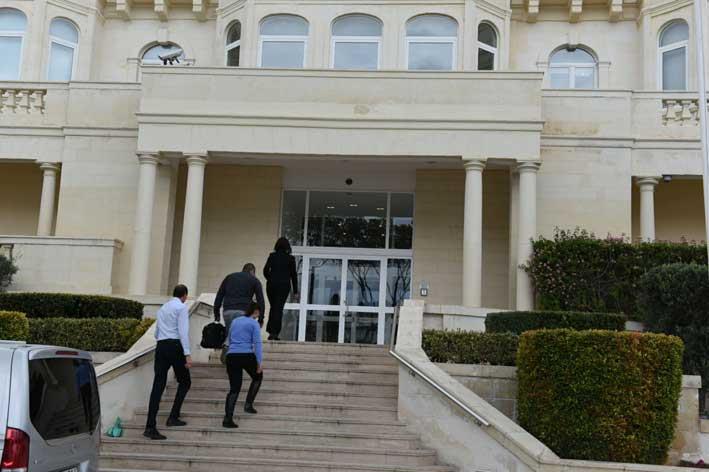
3.46pm: Azzopardi notes that the FIAU has the power to fine entities who breach the law. He asks Galdes whether Pilatus had ever been fined, to which Galdes states that the bank was not fined neither during his tenure, nor after it.
3.44pm: Azzopardi asks why Galdes had gone directly to the police commissioner in April 2016 as opposed to the police liaison officer, to which he replies that it was due to the secrecy of the case and the involvement of politically exposed persons (PEPs). Azzopardi asks whether the PEPs were in the government; "they were not in the Opposition", Galdes replies. He is asked whether the Attorney General Peter Grech had ever made an attachment order, to which Galdes replies in the negative.
3.42pm: Azzopardi now asks whether he agreed or disagreed on whether the reports he had seen in court had been "written to be leaked", to which Galdes replies; "Absolutely not". Azzopardi asks what exactly happened as soon as the Panama Papers broke. Galdes says they were already looking at the involvement of Schembri and Mizzi because of other investigations, and that the Panama Papers had happened only days after he submitted the details of the passport kickbacks allegations. He asks whether he had used Daphne Caruana Galizia's blog as a source, to which Galdes replies that this was "open source" and that any information should not be ignored and should be verified.
3.35pm: Azzopardi asks whether Galdes felt that he had found the necessary backing from the Finance Minister Edward Scicluna, to which Galdes replies in the affirmative, at which point Azzopardi asks how come the FIAU did not have the necessary resources. Galdes states that the FIAU had the ability to attract people from the private sector, but that there was a problem to retain them. He notes that despite at times even teaching people from the MFSA how to carry out anti-money launder site visits, for instance, the FIAU workers were still underpaid in comparison. He also laments again that there were two key department leadership roles which were vacant, which forced Galdes and the deputy director to take on the workload themselves.
3.31pm: Galdes states that he be able to speak more freely about specific cases if the sitting continues behind closed doors, to which Judge Said Pullicino agrees. Jason Azzopardi, one of the lawyer's families, first wants to ask a few questions.
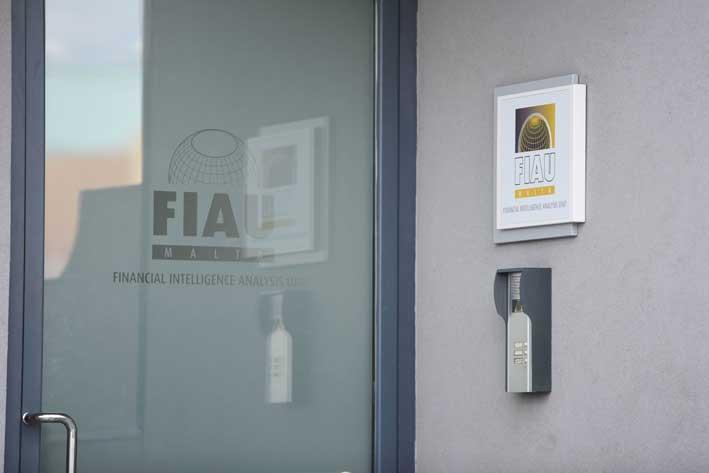
3.29pm: Galdes said that one can have the best FIAU in the world, but that when it is made up of just three - allbeit well intentioned - police inspectors to work money laundering cases, the system will never be effective. They never had the time to investigate any complex cases, he said. "You can fund it with millions, if the report goes to the police and nothing happens, what's the point. Even Moneyval flagged this as a major issue in Malta," Galdes continues before saying that he did not feel like he could work in a situation where the FIAU was "ineffective".
3.27pm: Galdes offers a copy of his resignation letter to the board. He said that this had never been published, but that he had kept it just in case such an inquiry would ever come up. He reads from the letter, saying that the "inability to find the right level of support to this project" was a key reason to his resignation.
3.26pm: Madam Justice Lofaro asks whether it would "be correct for someone to say that the police could not investigate a matter as it would interfere with the FIAU investigation or vice versa." "I think it is very good practice for entities to work together and help each other as each have different powers", he said and added that by the time he had left that practice had remained. Lofaro points out that therefore there was a precedent for good work to be done in coordination between the police and the FIAU, to which Galdes replies in the affirmative.
3.23pm: Madam Justice Lofaro goes back to the information cache which he had handed over to Cassar, and asks whether there could be concurrent investigations by the police and FIAU. "Good coordination helps everyone", Galdes states. Asked whether there was good coordination between the two entities, Galdes points out that he cannot say with regards to this specific case as he had left soon after, but noted that there had been good coordination in previous cases.
3.19pm: The third report, he states, is on the on-site examination into Pilatus Bank.
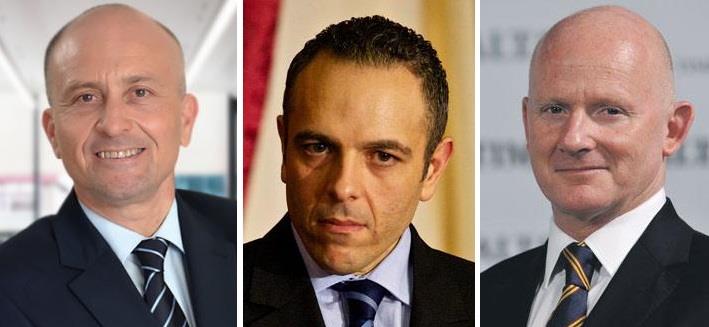
3.17pm: He looks at the second report, stating that this was on payments from Keith Schembri to former Allied Newspapers managing director Adrian Hillman, saying that - in this case, he had already left the FIAU and had only seen the final report when it was leaked by the media.
3.16pm: He states that the writing is familiar and that this is the report which he had passed on to the police. Galdes reads the title of the report, which reveals that he is talking about corruption allegations involving Keith Schembri, the passport selling scheme and Brian Tonna's offshore company called Willerby.
3.14pm: Comodini Cachia now presents FIAU reports which were leaked by the media, asking whether Galdes could identify them. He singles out one, saying that the format and style of it is different to what they usually used, but is now checking the content of the report. You can hear a pin drop in the courtroom as Galdes leafs through the report.
3.10pm: "Once there is reasonable suspicion, a Police investigation should start while the FIAU is looking for more information", Galdes said. "I feel we had enough evidence for the police to treat the case with urgency", he continues and adds that there were bank statements and other documents which were self-explanatory.
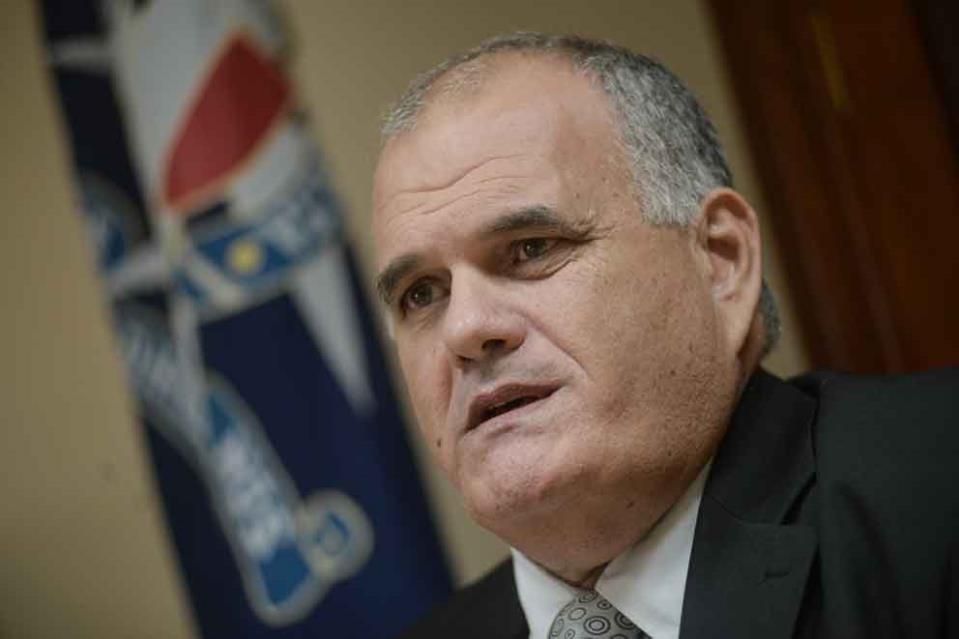
3.09pm: He said that he had gone directly to then police chief Michael Cassar (above) with the information because he deemed the information he had was of a serious nature, especially due to the people involved. He said that he had gone with a collection of documents to the Police Commissioner, and had gone to him directly with the intention of seeing the police investigate it. He said that the FIAU had every intention to continue investigating, but noted that if there was enough information for an investigation to take place he did not see why the police should wait for a formal report to begin their own investigations.
3.04pm: Galdes states that he had passed on one report to Michael Cassar directly when he was Commissioner of Police. Madam Justice Lofaro asks whether this was connected with the Panama Papers. Galdes says he would rather not say about what. Comodini Cachia asks when this was, to which Galdes replies that it was in April 2016.
3.02pm: Galdes again asks for the testimony to be done behind closed doors, saying that it was of national interest for the internal processes of the FIAU not to be made public. Said Pullicino says that they will continue with other questions and then proceed with other matters behind closed doors.
3.01pm: The FIAU board however would not have a say on the final decision as to whether to fine the institution or not, for instance, as they do not have the power to be involved in such a matter. When the FIAU was investigating matters however, the board would not be informed who the subject of the investigation would be unless there are circumstances which require them to be informed, such as media reports into the subject or the receipt of a letter from a lawyer with regards to the case. When that happened, then Galdes said that he would have to explain to the board what is happening in terms of the case in question.
2.59pm: Galdes explains that the FIAU board would be informed when the FIAU was undertaking major cases, but that they would not be informed with the details of the investigations. Comodini Cachia asks whether the board would know the names of the persons under investigation in case they were politically exposed persons. She brings up the investigation into Pilatus Bank as an example, asking whether the board was advised of that. Galdes points out the the investigation into Pilatus was different and that it was a compliance check like it does on any other office, and the FIAU board was indeed aware. He said that when there was the possibility that an entity such as a bank is said to be in breach of the law, the board would be informed and be given the findings of the on-site visits.
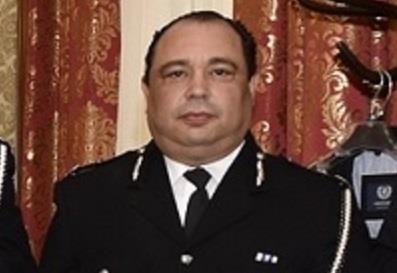
2.55pm: Asked by Therese Comodini Cachia who the police's representative on the FIAU board was, Galdes states that initially, Pierre Calleja held the post but that when the latter left the force, the post was taken over by Silvio Valletta (above).
2.52pm: He said that even if there was enough resources, the system in Malta was ineffective. Asked to elaborate, Galdes states that the system in Malta to investigate money laundering or financing terrorism revolves around suspicious transaction reports. These would come from a wide array of entities - lawyers, accountants for instance - who have an obligation to inform the FIAU of anything suspicious they see. The FIAU then examines these reports and gathers more information, he explains. He said that if there is reasonable suspicion following those investigations, the case goes to the police - and only the police, he emphasises when asked. Asked to whom he would give these reports, he explains that the Prevention of Money Laundering Act stipulates that there should be a Police Liaison Officer - he says that it was Inspector Ian Abdilla who occupied the role when he resigned, but in an acting capacity. He said that Michael Cassar - while he was still Head of the Economics Crime Unit - was the last permanent holder of the role.
2.47pm: The limitations in resources, he said, were in financial terms - the FIAU did not have the financial resources to pay the necessary salaries for the experts required to take these roles.
2.45pm: Getting to the reasons for his resignation, Galdes said that it had become "difficult for the FIAU to exercise its rights in terms of the law and its international obligations." He said the FIAU needed additional people, and that he had told the Finance Minister that there was the need for more resources. It was a time where it was "clear" that certain obligations which Malta had could not be fulfilled. He said that he felt that what needed to be done was not being done, noting that he had come to a point where he had two key roles which were vacant as the people had left to work elsewhere, and that the unit was in a situation where it could not bring in the people it needed.
2.43pm: Galdes begins his testimony by speaking about the circumstances surrounding his resignation. He states that in July 2016, when he felt that the time had come for him to resign, he had spoken to the FIAU Chairman Peter Grech and advised him of this, and on the same day he said that he wanted to speak to the Permanent Secretary, and they had gone there together. He said that there had been numerous attempts by both the Permanent Secretary and eventually the Chairman of the MFSA for him to stay on, but that his mind had been made up.
2.40pm: Galdes now asks for the information to be shared behind closed doors, citing the confidential nature of the information he is going to share. Judge Said Pullicino states that he should testify about what is in public knowledge first, and then they will see from there.
2.38pm: He states that the law prohibits FIAU personnel from giving certain information even after they have left the unit. Judge Mallia states that certain things can be made public, and that he may hence testify. Galdes states that he is more than willing - in fact wants to - testify fully, but does not want to incriminate himself to do so. Azzopardi and Comodini Cachia suggested that the board should order Galdes to testify in full. Mallia states that the board orders Manfred Galdes to testify about facts which he knows about from throughout his place as FIAU director, naturally in terms of that which concerns the subject and merits of this inquiry.
2.36pm: Galdes says that he was appointed FIAU director in July 2008 and resigned in July 2016.
2.33pm: The judges have entered the courtroom, and we are ready to begin
2.31pm: The Caruana Galizia lawyers have taken their places. Daphne's husband Peter is with them.
2.30pm: Courtroom has opened. Daphne's parents, as always, are among those present.
Brian Tonna statement
"Reference is made to the testimony of Dr Manfred Galdes in the context of the public inquiry into the murder of journalist Daphne Caruana Galizia. During his testimony, Dr Galdes disclosed the fact that a suspicious transaction report was submitted by the FIAU (at the time when he was Director of the FIAU) to the police for investigation, which report concerned transactions between Keith Schembri and Willerby Trading Inc. I emphasise that the transactions in question are currently subject to a separate magisterial inquiry led by Magistrate Natasha Galea Sciberras, and once again categorically deny any wrongdoing. I reiterate the legitimacy of those transactions and in view of the full faith in the judicial process of this ongoing inquiry I will refrain from making any further comments in connection with Dr Galdes' testimony."